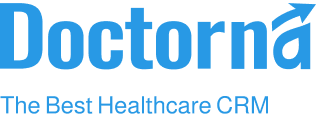I. Core Applications of AI in Patient Management
Managing patient care is no longer just about appointments and records—it’s about delivering timely, personalized support at every step. AI is making this easier than ever. By learning from data and automating routine tasks, AI helps healthcare providers connect with patients in smarter, more meaningful ways. Here are some of the fundamental ways AI enhances patient management:
A. Intelligent Appointment Scheduling
The patient journey often begins with scheduling an appointment. Traditional methods can be cumbersome, leading to long wait times, scheduling conflicts, and a significant number of no-shows. AI in patient management system is revolutionizing this process by employing sophisticated algorithms that analyze historical data, physician availability, appointment types, and even patient preferences to optimize scheduling.
Imagine a system that automatically sends timely reminders via SMS or email, offers convenient online rescheduling options, and even predicts potential no-shows, allowing staff to proactively fill those slots.
The impact of AI-powered appointment scheduling extends beyond mere convenience. By minimizing wait times, reducing no-shows, and ensuring optimal resource utilization, healthcare providers can enhance efficiency, improve patient satisfaction, and ultimately deliver more timely and effective care. This intelligent approach to scheduling is a foundational element of a modern, AI-driven patient management system.
B. AI-Powered Electronic Health Records (EHR) Management
Electronic Health Records (EHRs) are the central repository of patient information, but their true potential often remains untapped due to the sheer volume of unstructured data they contain. AI in patient management system offers powerful tools like Natural Language Processing (NLP) and machine learning to analyze patient notes, identify key information, and flag potential anomalies or inconsistencies. This intelligent processing transforms EHRs from static databases into dynamic sources of actionable insights for healthcare professionals.
By leveraging AI for EHR management, clinicians gain access to a more comprehensive and easily digestible view of a patient’s medical history. This leads to more informed decision-making, improved diagnostic accuracy, early detection of potential health risks, and ultimately, enhanced patient safety. The ability of AI to extract meaningful insights from EHR data is a cornerstone of its transformative impact on patient care.
C. Streamlining Billing and Insurance with AI
The complexities of healthcare billing and insurance claims often result in administrative headaches for both patients and providers. Errors in coding, incomplete documentation, and lengthy processing times can lead to delayed payments and increased operational costs.
AI in patient management offers a solution by automating many of these tedious and error-prone tasks. Machine learning algorithms can analyze billing codes, identify potential errors before submission, and even predict claim denials, significantly streamlining the revenue cycle.
The integration of AI in billing and insurance processes not only reduces administrative overhead and accelerates reimbursements but also minimizes the frustration and confusion often associated with healthcare finances for patients. By automating these critical functions, AI allows healthcare staff to focus more on patient care rather than being bogged down by paperwork and financial complexities.
D. Enhancing Patient Communication and Engagement through AI
Effective communication and active patient engagement are vital for achieving positive health outcomes. However, maintaining consistent and personalized communication with a large patient base can be challenging.
AI in patient management provides innovative solutions like AI-powered chatbots and virtual assistants that can offer instant responses to frequently asked questions, provide tailored pre- and post-care instructions, and send personalized reminders for medications and follow-up appointments.
AI-driven patient communication tools enhance the patient experience by providing convenient, 24/7 access to information and support. This personalized engagement fosters better adherence to treatment plans, empowers patients to take a more active role in their health journey, and ultimately leads to improved patient satisfaction and overall well-being.
E. Predictive Analytics for Proactive Patient Care
One of the most promising applications of AI in patient management lies in its ability to analyze vast amounts of patient data to identify trends and predict potential health risks. This capability, known as predictive analytics, allows healthcare providers to move beyond reactive treatment and adopt a more proactive approach to patient care.
For instance, AI algorithms can identify patients at high risk of hospital readmission or predict the likelihood of developing certain conditions based on their medical history and other relevant factors.
By harnessing the power of AI for predictive analytics, healthcare organizations can implement targeted interventions, personalize treatment plans, and potentially prevent adverse events before they occur. This proactive approach not only improves patient outcomes but also optimizes resource allocation and reduces the overall cost of care, marking a significant step towards a more intelligent and preventative healthcare system.
II. Advantages of Integrating AI into PMS
The integration of AI into patient management systems offers a wide array of advantages that benefit patients, healthcare providers, and the entire healthcare ecosystem. These benefits range from increased efficiency and accuracy to enhanced patient experiences and optimized resource utilization.
- Improved Efficiency and Productivity: Automation of routine administrative tasks like appointment scheduling, data entry, and billing processes frees up healthcare professionals to focus on patient care.
- Enhanced Accuracy and Reduced Errors: AI algorithms can process large volumes of data with greater accuracy than manual methods, minimizing errors in record-keeping, billing, and medication management.
- Better Patient Experience: Personalized communication, reduced wait times, and more convenient access to information through AI-powered tools lead to increased patient satisfaction and engagement.
- Optimized Resource Allocation: AI can analyze patient flow and predict demand, enabling healthcare facilities to optimize staffing, bed allocation, and equipment utilization, leading to cost savings and improved resource management.
- Cost Reduction: Streamlined processes, reduced errors, and optimized resource allocation contribute to significant cost savings for healthcare organizations in the long run.
- Enhanced Clinical Decision Support: AI can analyze patient data to provide clinicians with timely insights, flag potential risks, and support more informed diagnostic and treatment decisions.
Ultimately, the advantages of AI-enhanced patient management contribute to a more efficient, patient-centered, and cost-effective healthcare system. By streamlining processes, improving decision-making, and fostering better patient engagement, AI is paving the way for a healthier future for all stakeholders.
III. Challenges and Considerations for AI in Patient Management
While the potential of AI in patient management is immense, its successful implementation necessitates careful consideration of several challenges. Issues related to data privacy and security, the complexities of integrating AI with existing legacy systems, the potential for algorithmic bias, ethical implications, and the need for a skilled workforce must be addressed thoughtfully and proactively.
- Data Security and Privacy Concerns: The sensitive nature of patient health information necessitates robust security measures and strict adherence to privacy regulations to prevent data breaches and misuse.
- Integration Complexities: Integrating new AI-powered tools with existing, often legacy, healthcare IT systems can be technically challenging and require significant investment and expertise.
- Potential for Algorithmic Bias: AI algorithms are trained on data, and if that data reflects existing biases in healthcare, the AI system may perpetuate or even amplify these biases, leading to unfair or discriminatory outcomes.
- Ethical Implications: The use of AI in healthcare raises important ethical questions related to transparency, accountability, the role of human oversight in AI-driven decisions, and patient autonomy.
- Regulatory Hurdles: The healthcare industry is highly regulated, and the implementation of AI technologies must navigate evolving legal and regulatory frameworks.
- The Need for Skilled Workforce: Implementing, managing, and maintaining AI-powered PMS requires a workforce with the necessary technical skills and understanding of both AI and healthcare workflows.
- Patient and Clinician Trust and Acceptance: Building trust in AI systems among both patients and healthcare professionals is essential for successful adoption. Concerns about the “black box” nature of some AI algorithms need to be addressed through transparency and education.
Overcoming these challenges requires a collaborative effort involving technology developers, healthcare providers, policymakers, and patients. By addressing these considerations head-on, the healthcare industry can ensure that the integration of AI in patient management is both transformative and responsible, maximizing its benefits while mitigating potential risks.
IV. The Future Outlook
The future of healthcare is inextricably linked with the continued advancement and integration of AI in patient management. As AI technologies become more sophisticated and seamlessly integrated into clinical workflows, we can expect to see even more innovative applications that will further enhance the efficiency, personalization, and effectiveness of healthcare delivery.
AI is poised to become a cornerstone of patient management, driving a future where healthcare is more proactive, personalized, and ultimately, more human-centered. By embracing the power of artificial intelligence, the healthcare industry can unlock new levels of efficiency and deliver superior care to patients worldwide.
Conclusion
In conclusion, AI in patient management is not just a technological advancement; it’s a fundamental shift that promises to revolutionize how healthcare is delivered and experienced.
From intelligent scheduling and AI-powered EHRs to streamlined billing and proactive patient care, the applications of AI are vast and impactful. While challenges remain, the benefits of integrating these intelligent technologies are undeniable.
By embracing the power of AI in patient management, the healthcare industry can pave the way for a future where efficiency, accuracy, and patient-centricity are at the forefront of care delivery.







